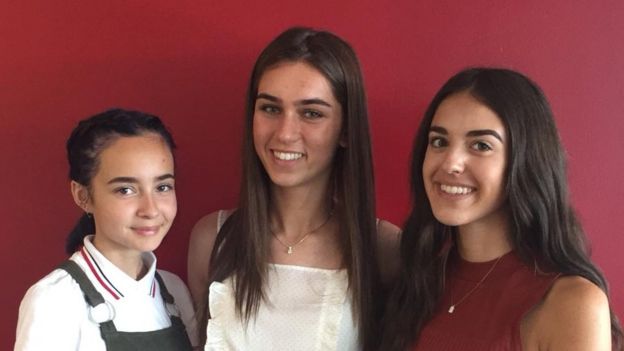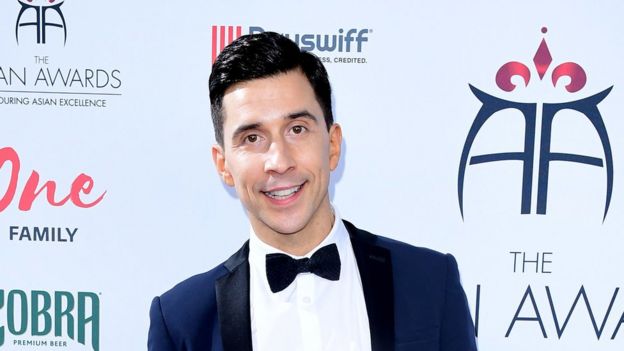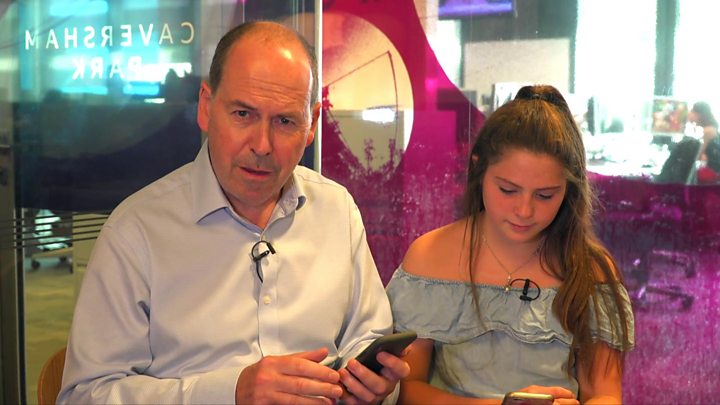Click on the picture and have fun!!
30.8.18
27.8.18
25.8.18
24.8.18
21.8.18
19.8.18
Can I Help You With Anything?
Think of someone you've lost touch with or haven't spoken to in awhile and take a moment to reach out and let them know you're thinking of them. A friend, a family member, a favorite teacher. It can be anyone.
18.8.18
16.8.18
14.8.18
11.8.18
9.8.18
7.8.18
6.8.18
Every kid needs a champion | Rita Pierson - video and transcript
I have spent my entire life either at the schoolhouse, on the way to the schoolhouse, or talking about what happens in the schoolhouse. Both my parents were educators, my maternal grandparents were educators, and for the past 40 years, I’ve done the same thing.
And so, needless to say, over those years I’ve had a chance to look at education reform from a lot of perspectives. Some of those reforms have been good. Some of them have been not so good. And we know why kids drop out. We know why kids don’t learn. It’s either poverty, low attendance, negative peer influences. We know why.
But one of the things that we never discuss or we rarely discuss is the value and importance of human connection. Relationships. James Comer says that no significant learning can occur without a significant relationship. George Washington Carver says all learning is understanding relationships. Everyone in this room has been affected by a teacher or an adult. For years, I have watched people teach.
I have looked at the best and I’ve looked at some of the worst. A colleague said to me one time, “They don’t pay me to like the kids. They pay me to teach a lesson. The kids should learn it. I should teach it, they should learn it. Case closed.”
Well, I said to her, “You know, kids don’t learn from people they don’t like.”
She said, “That’s just a bunch of hooey.”
And I said to her, “Well, your year is going to be long and arduous, dear.”
Needless to say, it was. Some people think that you can either have it in you to build a relationship, or you don’t. I think Stephen Covey had the right idea. He said you ought to just throw in a few simple things, like seeking first to understand, as opposed to being understood. Simple things, like apologizing. You ever thought about that? Tell a kid you’re sorry, they’re in shock.
I taught a lesson once on ratios. I’m not real good with math, but I was working on it. And I got back and looked at that teacher edition I’d taught the whole lesson wrong. So I came back to class the next day and I said, “Look, guys, I need to apologize. I taught the whole lesson wrong. I’m so sorry.” They said, “That’s okay, Ms Pierson. You were so excited, we just let you go.”
I have had classes that were so low, so academically deficient, that I cried. I wondered, “How am I going to take this group, in nine months, from where they are to where they need to be? And it was difficult, it was awfully hard. How do I raise the self-esteem of a child and his academic achievement at the same time? One year I came up with a bright idea I told all my students, “You were chosen to be in my class because I am the best teacher and you are the best students, they put us all together so we could show everybody else how to do it”
One of the students said, “Really?”
I said, “Really. We have to show the other classes how to do it, so when we walk down the hall, people will notice us, so you can’t make noise. You just have to strut.” And I gave them a saying to say: “I am somebody. I was somebody when I came. I’ll be a better somebody when I leave. I am powerful, and I am strong. I deserve the education that I get here. I have things to do, people to impress, and places to go.”
And they said, “Yeah!” You say it long enough, it starts to be a part of you.
I gave a quiz, 20 questions A student missed 18. I put a “+2” on his paper and a big smiley face. He said, “Ms Pierson, is this an F?”
I said, “Yes.”
He said, “Then why’d you put a smiley face?”
I said, “Because you’re on a roll. You got two right. You didn’t miss them all.” I said, “And when we review this, won’t you do better?”
He said, “Yes, ma’am, I can do better.”
You see, “-18” sucks all the life out of you “+2” said, “I ain’t all bad.” For years, I watched my mother take the time at recess to review, go on home visits in the afternoon, buy combs and brushes and peanut butter and crackers to put in her desk drawer for kids that needed to eat, and a washcloth and some soap for the kids who didn’t smell so good.
See, it’s hard to teach kids who stink. And kids can be cruel. And so she kept those things in her desk, and years later, after she retired, I watched some of those same kids come through and say to her, “You know, Ms Walker, you made a difference in my life. You made it work for me. You made me feel like I was somebody, when I knew, at the bottom, I wasn’t. And I want you to just see what I’ve become.”
And when my mama died two years ago at 92, there were so many former students at her funeral, it brought tears to my eyes, not because she was gone, but because she left a legacy of relationships that could never disappear. Can we stand to have more relationships? Absolutely. Will you like all your children? Of course not.
And you know your toughest kids are never absent. Never. You won’t like them all, and the tough ones show up for a reason. It’s the connection. It’s the relationships.
So teachers become great actors and great actresses, and we come to work when we don’t feel like it, and we’re listening to policy that doesn’t make sense, and we teach anyway. We teach anyway, because that’s what we do. Teaching and learning should bring joy. How powerful would our world be if we had kids who were not afraid to take risks, who were not afraid to think, and who had a champion? Every child deserves a champion, an adult who will never give up on them, who understands the power of connection, and insists that they become the best that they can possibly be Is this job tough? You betcha.
Oh God, you betcha. But it is not impossible. We can do this. We’re educators. We’re born to make a difference.
Thank you so much.
5.8.18
3.8.18
Understand The Difference Between Second Cousins And Cousins Once Removed
This is a handy chart to bookmark in your web browser so that you never forget again.
This chart was designed by Alice J. Ramsey in 1987, but her advice still stands today.
Here’s how to use the chart: Start from the “Self” box, and then trace your way to the relationship you are trying to name.
Remembering what my mom’s cousin’s children are in relation to me is always a tricky one for me. Using this chart, I can see that they are my second cousins. And their kids? My second cousins once removed. Their kids? Second cousins twice removed.
Once Removed—What Does It Mean?
This chart gives us a visual depiction of what “once removed” really means. It’s easy to see that you and all of your cousins—even those second and third cousins—are in the same generation. But when you get into different generations, that’s when it comes “once” or “twice” removed—what that really means is one generation removed, according to the chart.
“For example, your mother’s first cousin is your first cousin, once removed. This is because your mother’s first cousin is one generation younger than your grandparents and you are two generations younger than your grandparents, ” according to an article on Genealogy. “This one-generation difference equals ‘once removed.’ Twice removed means that there is a two-generation difference. You are two generations younger than a first cousin of your grandmother, so you and your grandmother’s first cousin are first cousins, twice removed.”
1.8.18
Scroll Free September
Scroll Free September offers a unique opportunity to take a break from all personal social media accounts for 30 days during September
A good relationship is one of balance, and Scroll Free September is here to help you gain that with social media both on and offline
Why go #ScrollFree this September?
With its almost universal reach and unprecedented ability to connect people from all walks of life, social media holds great potential to support good mental health and wellbeing. It has revolutionised the way we communicate and share information.
But have you ever thought about your relationship with social media? Maybe it’s starting to have a negative impact on your life? Even making you a little anti-social?
Emerging evidence is raising concerns about the potential impact of social media on our mental health and wellbeing. In 2017, our #StatusOfMind report highlighted a range of potential negative effects of social media, including anxiety and depression, negative body image, cyberbullying, poor sleep and FOMO (fear of missing out).
By going Scroll Free for a month, you’ll have a chance to reflect on your social media use – what you missed, what you didn’t, and what you got to do and enjoy instead.
By taking notice of and learning which elements of social media make you feel good and which make you feel bad, participating in Scroll Free September could help you build a healthier, more balanced relationship with social media in the future – a relationship where your use is conscious and mindful, and where you are the one in control.
How do I get involved?
We are asking all social media users (not just young people!) to take a break from all personal social media accounts throughout September (work use and instant messaging apps are fine!).
We know that going cold turkey on social media will be a challenge, so before you start tweeting your excuses, don't worry – we are providing you with a few different options to make your participation that bit easier...
Which plan will you go for?





Social media devotees are being encouraged to "take back control" and stop scrolling through their feeds for an entire month.
The Royal Public Health Society is behind Scroll Free September, which is targeting users of Facebook, Instagram, Twitter and Snapchat.
It believes logging off could improve sleep, relationships and wellbeing.
NHS England said it was right to highlight social media's role in a rise in young people's mental health issues.
The campaign is asking phone addicts to give up, or cut down on, their use of personal social media accounts.
- Why we ditched our mobile phones
- Social media is 'deliberately' addictive
- Instagram 'worst for young mental health'
- Simon Cowell gives up phone for 10 months
Half of users aged 18-34 think going "cold turkey" for a month would have a positive effect on their sleep and real-world relationships, research by RSPH found.
And almost half (47%) thought it would be beneficial to their overall mental health.
'It's constant'
Marianne Blandamer, Emma Jackson and Rianna Parry are all big fans of Snapchat and Instagram.
"It's constant. I go straight to it when I get up. You feel like you have to keep up with what everyone is talking about," Rianna, 15, said.
"Sometimes I feel like I'm a slave to my phone. I'm scrolling for nothing."
This September, the Wigan teenager is going to try and stop using social media in the evenings.
 Image copyrightRSPH
Image copyrightRSPH
Her friend Emma, also from Wigan, said she always had her phone on her. "I think I do use it too much, but it's a habit. It's definitely distracting," the 14-year-old told BBC News.
Emma said she could not see herself giving it up completely, but would try to avoid looking at social media when she got home from school every evening.
Marianne managed to give up social media during her GCSEs.
"It was weird at the start, but because I was so busy it was fine," the 16-year-old from Trafford said. "You scroll when you're bored."
This September, Marianne will start sixth form where she will be allowed to have a phone with her, but she has decided not to use it.
"I know if I go and start using it, it'll become normal. I need to keep it separate."
'No longer in control'
Comedian Russell Kane, 42, has revealed he is having counselling for internet addiction.
Speaking on his Joe.co.uk podcast, Boys Don't Cry with Russell Kane, he said: "I'll throw something out there. I've had six counselling sessions for internet addiction... because it's affecting my life."
 Image copyrightPA
Image copyrightPA
"I was getting in, say from a gig, going back on a Sunday morning, and all my family's arrived to a barbecue and I'll go and get changed.
"But I wasn't just going up there to get changed, I was going up there because I wanted to refresh my socials and have a few minutes on the phone.
"I am no longer in control of how I'm using that machine."
The RSPH's Shirley Cramer said social media had "great potential to have positive impacts on mental health and wellbeing", by connecting people.
But for many young people, the overall impact could be detrimental, she added.
The RSPH report warned that social media could be fuelling a mental health crisis in young people - with Snapchat and Instagram the worst culprits.
NHS England's national director for mental health, Claire Murdoch, said everyone - including social media giants - needed to take responsibility to tackle the "mental health epidemic in the next generation".
Confessions of a smartphone addict
By BBC technology correspondent Rory Cellan-Jones

WATCH: Are Rory and Lily addicted to their phones?
Apple's new mobile operating system, which will be available to everyone in September, has a new feature called ScreenTime which allows you to monitor how you are using an iPhone and set yourself limits.
Just after 10 one morning, I found I had already clocked up two hours and 38 minutes of screen time. I had picked up the phone nine times every hour and had received 33 notifications.
I had spent an hour looking at Twitter or sending tweets. No surprise really - first thing at morning and last thing at night I tend to glance at the social media app which has become my early warning system for breaking news.
When I met up with Lily, 12, to compare notes, it turned out that hers was a similar story of social media use, albeit on a much more restrained scale. By just after 15:00 she had been on her phone for one hour and 44 minutes, with 38 minutes of that on Instagram and nine on Snapchat.








.bmp)


















